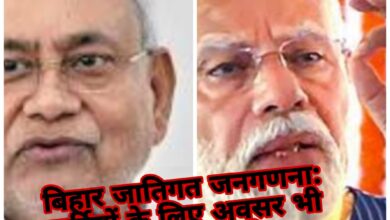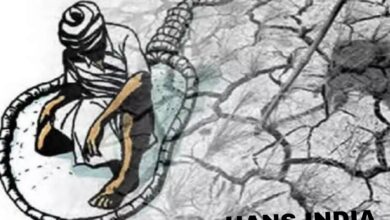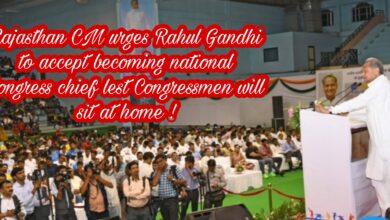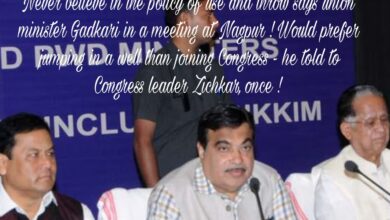Virtual international Buddhist Conference to commence on 27 th October : Prof. Rao, JNU
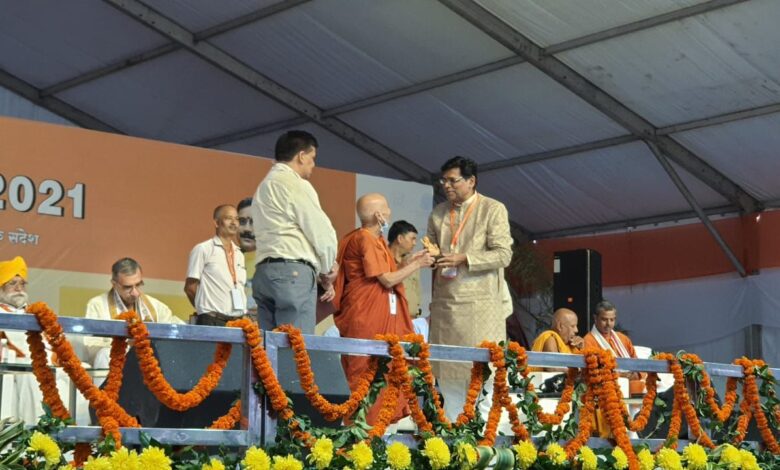
Jawaharlal Nehru University New Delhi will organise an
INTERNATIONAL BUDDHIST CONFERENCE (VIRTUAL MODE) on the theme, THE SPREAD OF BUDDHIST THOUGHT in collaboration with with the
INDIAN COUNCIL FOR CULTURAL RELATIONS (ICCR)
and IBC from tomorrow i. e. 27 to 28 October 2021
PROF. C. UPENDER RAO, the director of the conference and Professor of Sanskrit and Pali, School Of Sanskrit And Indic Studies, Jawaharlal Nehru University in a statement said that the Buddhist thought originated in India, and spread throughout the world, having grown in distinct streams and practices, the Theravāda in South and Southeast Asia, the Mahāyāna in East Asia, and the Vajrayāna in Tibet he added. Speaking about the origin of Buddhism he said that it primarily originated in India and slowly waned in its land for several reasons, such as the invasion of the Huns. They sacked Buddhist monasteries in the north, and other invaders burnt the Buddhist Libraries. By the 13th century, repeated attacks conducted by the invaders from outside ensured that Buddhism had virtually disappeared from India. Buddhism is the ancient Indian thought which arose in Magadha and spread in entire India said professor Upendra Rao in his statement. Expressing his anguish Professor Rao said that unfortunately due to the said developments, except for the Himalayan regions, Buddhism almost became extinct in India after the arrival of Islamic invaders in the late 12th century.

Pic : Professor Upendra Rao
However, Buddhism had already reached other parts of Asia, like Vietnam, Thailand, and Indonesia he added.
Giving further details professor Rao said while the Dharmagupta tradition is followed in China, Korea, Vietnam, and Taiwan, the Mula-sarvastivada tradition is followed in Tibet whereas the Bodhidharma had transformed Buddhist thought in China. Padmasambhava constructed the first Buddhist monastery in Tibet. Atiśa was one of the significant figures in the spread of Mahāyāna and Vajrayāna Buddhism in Asia. Thus the Indian Ācāaryas have propagated Buddhism in various regions, including in East Asia and Central Asia.
Lauding Emperor Ashoka for establishing Budhism in as early as the 3rd century BCE, he further said that the Indian emperor Ashoka has established the Buddhist tradition on the island of Sri Lanka and by the 5th century C.E., Buddhism had spread throughout Myanmar and Thailand. By the 13th century C.E., one of the early Buddhist schools, the Theravada had become the dominant tradition of South and Southeast Asia, including Cambodia and Laos added professor Rao.
It is in view of the above the conference will focus on the reflections of Indian Buddhist thought throughout the world, including the Indian states. The invited speakers will present their research papers on Various Buddhist ethics and philosophical traditions that have spread and grown in various parts of the world.
This conference is being held in the run-up to the Global Buddhist Conference (GBC) 2021. The Indian Council for Cultural Relations (ICCR) will provide the digital platform for the conference. An E-book of abstracts and conference proceedings will be uploaded on the website of ICCR said Rao.
The proposed dates of the Virtual mode Global Buddhist Conference are 27-28 October 2021. Time 9:30 AM to 5:30 PM (Delhi Time).
He conclusuvely said that the Scholars will investigate the historical and cultural influence of Mainland Buddhism on the Buddhist traditions of their countries and will primarily focus on various practices, arts, sculptures, philosophical schools, and other traditions of Buddhism, including literature. The chief guest of the conference will be minister of state for external affairs Meenakshi Lekhi and guest of honours would be secretary general of Intl. Budhist Confederation ( IBC) Dr. Dhanmappiyaand DDG, ICCR Shri Chinmoy Naik. The welcome adress would be delivered by professor C. Upendra Rao of Jawahar Nehru university.


